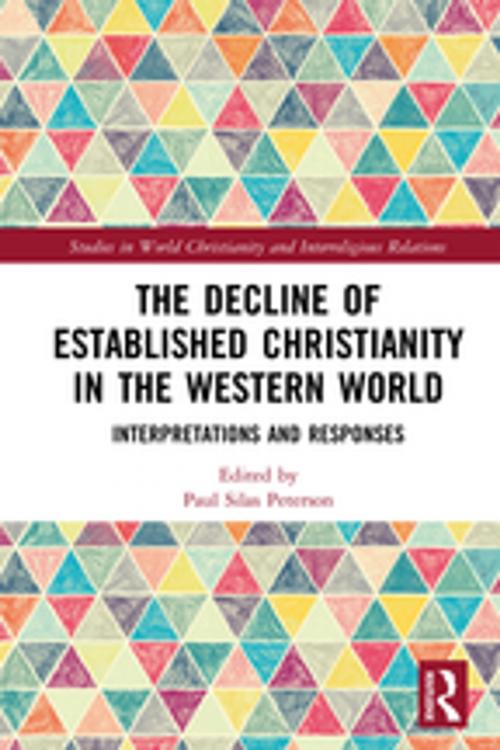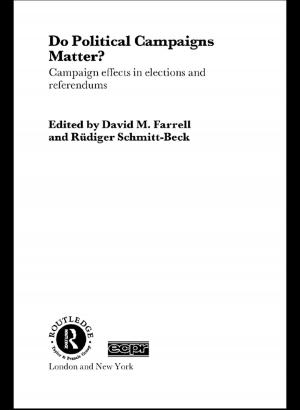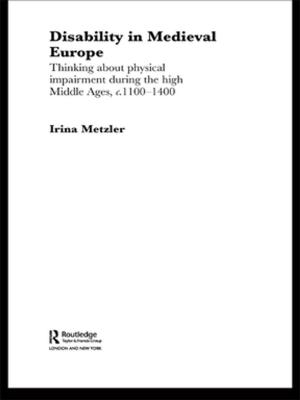The Decline of Established Christianity in the Western World
Interpretations and Responses
Nonfiction, Religion & Spirituality, Christianity, Church, Church History, General Christianity| Author: | ISBN: | 9781351390422 | |
| Publisher: | Taylor and Francis | Publication: | September 22, 2017 |
| Imprint: | Routledge | Language: | English |
| Author: | |
| ISBN: | 9781351390422 |
| Publisher: | Taylor and Francis |
| Publication: | September 22, 2017 |
| Imprint: | Routledge |
| Language: | English |
While Church attendance in the West is often cited as being in decline, it is argued that this applies primarily to the older established forms of Christianity. Other expressions of the faith are, in fact, stable or even growing. This volume provides multidisciplinary interpretations of and responses to one of the most complicated and controversial issues regarding the global transformation of Christianity today: the decline of "established Christianity" in the Western world. It also addresses the future of Christianity in the West after the decline.
Drawing upon historical research, sociology, religious studies, philosophy and theology, an international panel of contributors provide new theoretical frameworks for understanding this decline and offer creative suggestions for responding to it. "Established Christianity" is conceptualized as historically, culturally, socially and politically embedded religion (with or without official established status).
This is a dynamic volume that gives fresh perspective on one of the great social changes taking place in the West today. As such, it will be of great interest to scholars of religious sociology, history and anthropology, as well as theologians.
While Church attendance in the West is often cited as being in decline, it is argued that this applies primarily to the older established forms of Christianity. Other expressions of the faith are, in fact, stable or even growing. This volume provides multidisciplinary interpretations of and responses to one of the most complicated and controversial issues regarding the global transformation of Christianity today: the decline of "established Christianity" in the Western world. It also addresses the future of Christianity in the West after the decline.
Drawing upon historical research, sociology, religious studies, philosophy and theology, an international panel of contributors provide new theoretical frameworks for understanding this decline and offer creative suggestions for responding to it. "Established Christianity" is conceptualized as historically, culturally, socially and politically embedded religion (with or without official established status).
This is a dynamic volume that gives fresh perspective on one of the great social changes taking place in the West today. As such, it will be of great interest to scholars of religious sociology, history and anthropology, as well as theologians.















